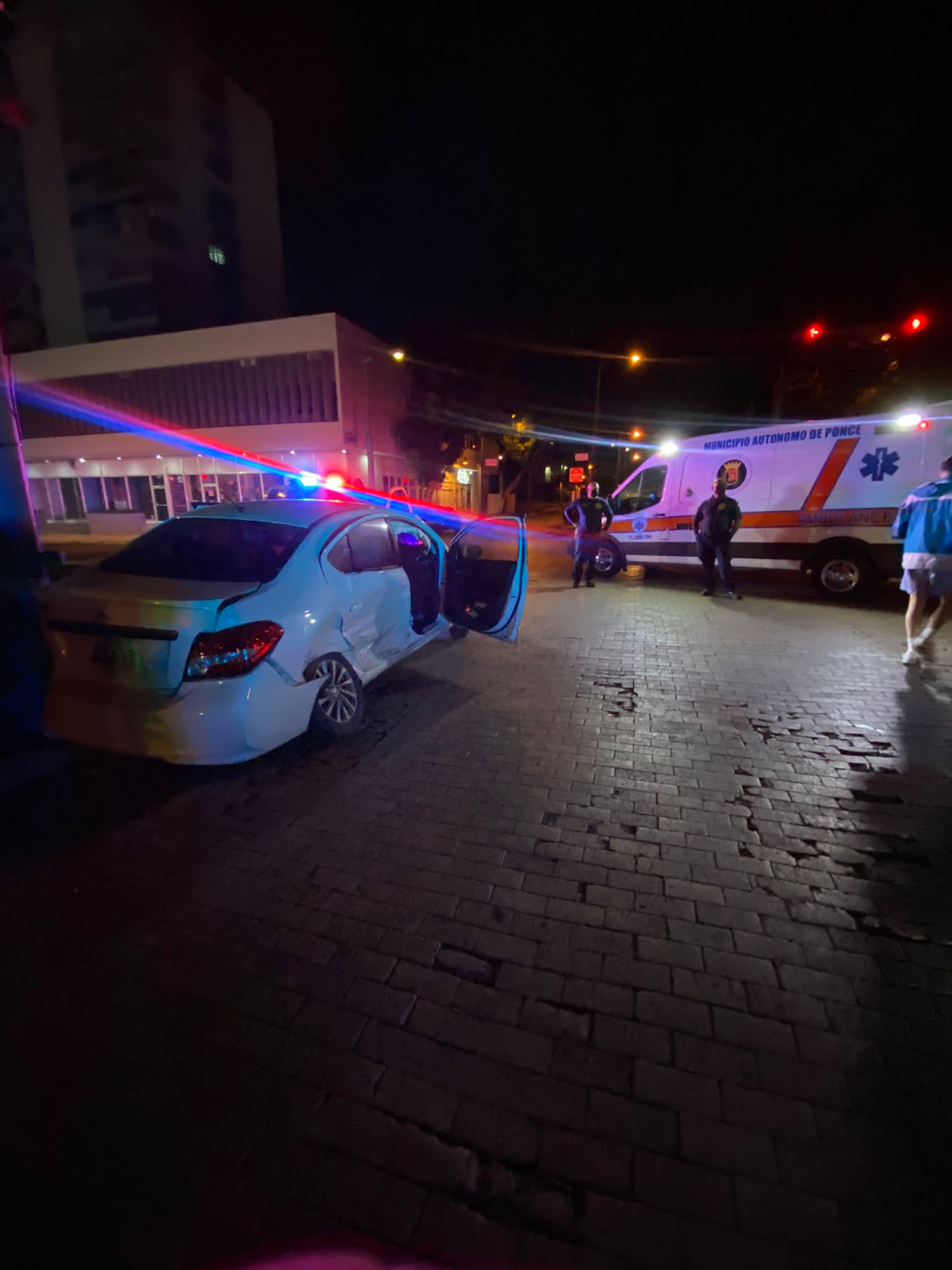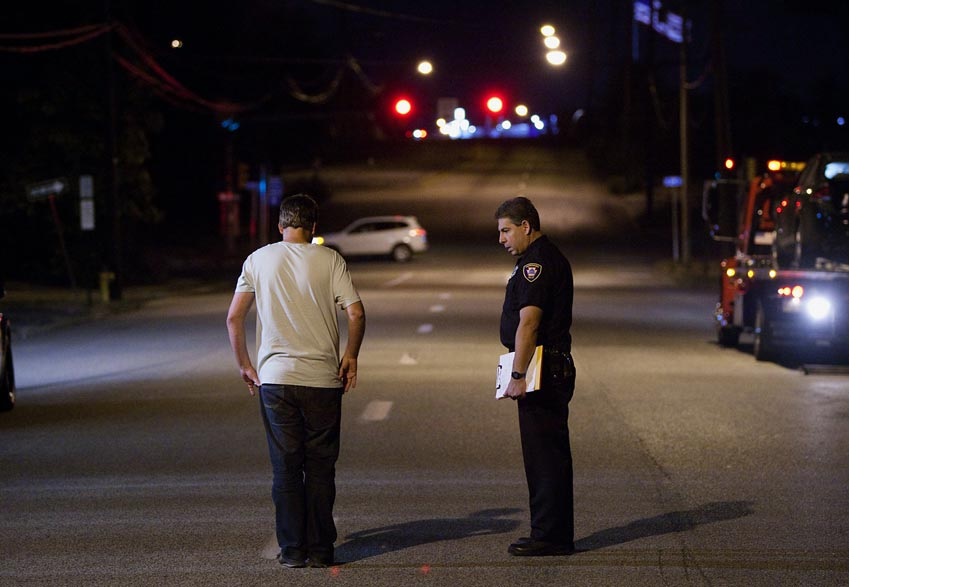DWI Administrative Hearings After DWI Arrests in Louisiana: Understanding Your Rights and Legal Options
Introduction
A Driving While Intoxicated (DWI) arrest in Louisiana can be a life-altering event, carrying severe legal consequences and potential long-term repercussions. Apart from criminal charges, individuals arrested for DWI may also face administrative consequences that could affect their driving privileges. In this comprehensive blog article, we will delve into the intricacies of DWI administrative hearings in Louisiana, exploring the process, your rights, and the legal options available to navigate this challenging situation.
1. Understanding Administrative License Suspension
In Louisiana, like many other states, the Department of Public Safety and Corrections (DPSC) has the authority to administratively suspend a driver’s license following a DWI arrest. This administrative suspension is a separate process from any criminal charges and is based on the state’s implied consent law.
2. Implied Consent Law in Louisiana
The implied consent law in Louisiana states that anyone operating a motor vehicle on public roadways is deemed to have given consent to chemical testing if arrested for DWI. Chemical testing typically involves a breathalyzer, blood, or urine test to measure the driver’s blood alcohol concentration (BAC).
Refusal to submit to chemical testing can result in an administrative license suspension, even if you are later found not guilty of the DWI charge in court. It’s important to note that you have the right to consult with an attorney before deciding whether to take the chemical test or refuse it, and you should exercise this right to protect your legal interests.
3. The Notice of Suspension
After a DWI arrest, the arresting officer will issue a “Notice of Suspension” if you fail a chemical test or refuse to take one. The notice serves as a temporary driving permit, allowing you to drive for 30 days from the date of arrest.
4. Requesting an Administrative Hearing
Within 15 days of receiving the Notice of Suspension, you have the right to request an administrative hearing to challenge the suspension of your driver’s license. It is crucial to act promptly and engage an experienced DWI attorney to guide you through this process effectively.
5. The Role of the Administrative Law Judge
The administrative hearing is presided over by an Administrative Law Judge (ALJ) appointed by the Louisiana Office of Motor Vehicles (OMV). The ALJ is impartial and will listen to both the driver and the arresting officer’s testimony to determine the validity of the license suspension.
6. Grounds for Challenging the Suspension
During the administrative hearing, your attorney may present various arguments to challenge the license suspension:
Improper Arrest or Procedure: If there were procedural errors during the arrest or the administration of the chemical test, the license suspension may be deemed invalid.
Accuracy of Test Results: Your attorney can question the accuracy of the chemical test results, raising doubts about the reliability of the equipment or the testing process.
Lack of Probable Cause: If the arresting officer lacked probable cause for the DWI arrest, it may provide grounds for challenging the suspension.
Inadequate Notice: If you did not receive the Notice of Suspension within the required timeframe, it may be a basis for challenging the suspension.
7. Hearing Decision and License Suspension
The ALJ will consider the evidence presented during the hearing and issue a written decision. If the ALJ finds in your favor, the suspension will be rescinded, and your driving privileges will be reinstated. However, if the ALJ upholds the suspension, your driver’s license will remain suspended for the specified period.
8. License Suspension Periods
The length of the administrative license suspension depends on various factors, including whether it is your first or subsequent offense and whether you refused the chemical test:
First Offense: If it’s your first DWI offense, and you failed the chemical test, your license may be suspended for 90 days. If you refused the chemical test, the suspension period may be 180 days.
Second Offense: For a second DWI offense within 5 years of the first offense, and you failed the chemical test, the suspension period may be 1 year. For a second offense and refusal of the chemical test, the suspension period may be 2 years.
Subsequent Offenses: Subsequent offenses may result in longer suspension periods, depending on the number of prior DWI convictions and whether you failed the chemical test or refused it.
9. Limited Driving Privileges
If your license is suspended administratively, you may be eligible for limited driving privileges during the suspension period. Limited driving privileges allow you to drive for specific purposes, such as going to work, school, or medical appointments. Your attorney can help you understand the eligibility requirements and guide you through the process of obtaining limited driving privileges.
10. Appeal Process
If you are dissatisfied with the outcome of the administrative hearing, you may have the option to appeal the decision. The appeal process involves filing a petition in a Louisiana district court, and it is advisable to seek legal representation to handle the complexities of the appeal.
Conclusion
Facing a DWI arrest in Louisiana is a daunting experience, but understanding your rights and the legal options available can provide a sense of empowerment during this challenging time. The administrative license suspension process requires swift action and strategic advocacy. Seeking the counsel of an experienced DWI attorney is crucial to effectively navigate the administrative hearing and protect your driving privileges. Remember, you have the right to challenge the license suspension and explore every avenue to secure a favorable outcome. By exercising your rights and enlisting the help of a skilled attorney, you can work towards minimizing the impact of a DWI arrest on your life and future.
DWI Administrative Hearings in Louisiana: Navigating the Road Ahead
Introduction
A Driving While Intoxicated (DWI) arrest in Louisiana can have serious consequences, including criminal charges, fines, and potential jail time. In addition to these legal ramifications, individuals arrested for DWI may also face administrative consequences that can impact their driving privileges. The state of Louisiana conducts DWI administrative hearings to determine the validity of a driver’s license suspension after a DWI arrest. In this comprehensive blog article, we will explore the ins and outs of DWI administrative hearings in Louisiana, covering the process, your rights, and essential legal information to help you navigate this challenging situation.
1. The Importance of Understanding DWI Administrative Hearings
DWI administrative hearings are distinct from criminal court proceedings. They focus on the suspension of a driver’s license following a DWI arrest, and they are conducted by the Louisiana Office of Motor Vehicles (OMV). It is crucial to recognize the significance of these hearings, as they can impact your ability to drive legally, even before your criminal case goes to court.
2. The Implied Consent Law in Louisiana
The foundation of DWI administrative hearings in Louisiana lies in the state’s implied consent law. Under this law, anyone operating a motor vehicle on public roadways is deemed to have given consent to chemical testing if they are lawfully arrested for DWI. The purpose of the chemical test is to determine the driver’s blood alcohol concentration (BAC) level.
3. DWI Arrest and Notice of Suspension
When a driver is arrested for DWI and subjected to a chemical test, the arresting officer will issue a “Notice of Suspension.” This notice informs the driver that their license will be suspended administratively due to the DWI arrest. It serves as a temporary driving permit, valid for 30 days from the date of arrest.
4. The Right to Request an Administrative Hearing
Upon receiving the Notice of Suspension, the driver has the right to request an administrative hearing to challenge the license suspension. This request must be made within 15 days of receiving the notice. Failing to request a hearing within this timeframe may result in an automatic license suspension after the 30-day temporary permit expires.
5. The Administrative Law Judge (ALJ) and Hearing Process
The administrative hearing is presided over by an Administrative Law Judge (ALJ) appointed by the Louisiana Office of Motor Vehicles. The ALJ acts as an impartial decision-maker and is responsible for evaluating the evidence presented during the hearing.
During the hearing, the driver or their attorney has the opportunity to present arguments and evidence to challenge the license suspension. The arresting officer may also provide testimony and evidence to support the suspension. Both sides have the chance to cross-examine witnesses and challenge the evidence presented.
6. Grounds for Challenging the License Suspension
Several grounds can be used to challenge the license suspension during the administrative hearing:
- Procedural Errors: If there were any procedural errors during the DWI arrest or the administration of the chemical test, it may invalidate the license suspension.
- Accuracy of Test Results: Challenging the accuracy of the chemical test results can raise doubts about the reliability of the equipment or the testing process.
- Lack of Probable Cause: If the arresting officer lacked probable cause for the DWI arrest, it may provide grounds for challenging the suspension.
- Inadequate Notice: If the driver did not receive the Notice of Suspension within the required timeframe, it may be a basis for challenging the suspension.
7. Hearing Decision and License Suspension
After considering all the evidence presented during the hearing, the ALJ will issue a written decision. If the ALJ finds in favor of the driver, the license suspension will be rescinded, and the driver’s driving privileges will be reinstated. On the other hand, if the ALJ upholds the suspension, the driver’s license will remain suspended for the specified period.
8. License Suspension Periods
The length of the administrative license suspension depends on various factors, including the driver’s prior DWI history and whether they refused the chemical test:
- First Offense: For a first DWI offense, the administrative suspension is typically 90 days if the driver failed the chemical test and 180 days if the driver refused the test.
- Second Offense: For a second DWI offense within 5 years of the first offense, the administrative suspension may last for 1 year if the driver failed the chemical test and 2 years if the driver refused the test.
- Subsequent Offenses: Subsequent DWI offenses can result in longer suspension periods, and the driver may face stricter penalties.
9. Limited Driving Privileges
Despite the license suspension, drivers may be eligible for limited driving privileges during the suspension period. Limited driving privileges allow the driver to drive for specific purposes, such as going to work, school, or medical appointments. The process of obtaining limited driving privileges can vary, and it is essential to consult with an attorney to understand the eligibility requirements and navigate the application process.
10. The Appeal Process
If the driver is dissatisfied with the outcome of the administrative hearing, they may have the option to appeal the decision. The appeal process involves filing a petition in a Louisiana district court. It is important to note that the appeal must be filed within a specific timeframe after the hearing decision, and legal representation is highly recommended to handle the complexities of the appeal.
11. DWI Administrative Hearings and Criminal Proceedings
It is essential to understand that DWI administrative hearings are separate from criminal court proceedings. Winning the administrative hearing does not guarantee a favorable outcome in the criminal case, and vice versa. It is possible for a driver to have their license suspended administratively while being acquitted of the criminal DWI charges or vice versa.

Conclusion
Facing a DWI arrest and the prospect of a license suspension can be overwhelming and frightening. Understanding the process of DWI administrative hearings in Louisiana is critical to protecting your driving privileges and legal rights. Timely action, strategic advocacy, and the guidance of an experienced DWI attorney are key elements to navigate the administrative hearing successfully.
Remember that you have the right to request an administrative hearing and challenge the license suspension. By presenting strong arguments and evidence, and with the assistance of a skilled attorney, you can work towards securing a favorable outcome during the hearing.
When facing a DWI arrest and administrative hearing, knowledge is power. Educating yourself about the process and seeking legal representation can empower you to make informed decisions and increase your chances of retaining your driving privileges. While the road ahead may be challenging, with the right approach, you can effectively navigate the complexities of DWI administrative hearings in Louisiana.

The Appeal Process for Administrative Law Hearings for Driver’s License in Louisiana
Introduction
In Louisiana, a driver’s license is not only a privilege but a crucial necessity for daily life. However, this privilege can be jeopardized due to various reasons, including a DWI arrest or other traffic violations. If your driver’s license is suspended or revoked administratively by the Louisiana Office of Motor Vehicles (OMV), you have the right to appeal the decision through an administrative appeal process. In this blog article, we will delve into the intricacies of the appeal process for administrative law hearings concerning driver’s licenses in Louisiana, helping you understand your rights and navigate this challenging situation effectively.
1. Understanding Administrative License Suspension
Administrative license suspension is a process by which the OMV suspends or revokes a driver’s license for specific reasons, such as a DWI arrest, refusal to submit to a chemical test, accumulation of too many traffic violations, or other serious driving offenses.
2. The Notice of Suspension
When the OMV administratively suspends or revokes your driver’s license, they will issue a “Notice of Suspension” informing you of the action taken and the reasons behind it. This notice will also provide you with the effective date of the suspension or revocation.
3. The Right to Appeal
If your driver’s license is suspended or revoked administratively, you have the right to appeal the OMV’s decision. The appeal process allows you to challenge the suspension or revocation and present your case before an impartial Administrative Law Judge (ALJ).
4. Requesting an Administrative Appeal
To initiate the appeal process, you must request an administrative appeal within a specific timeframe. In Louisiana, the appeal request must be submitted to the OMV within 30 days from the date of receiving the Notice of Suspension.
5. Grounds for Appeal
There are several grounds on which you can base your appeal:
- Procedural Errors: If there were any procedural errors during the administrative process that led to the suspension or revocation, you may challenge the decision on these grounds.
- Accuracy of Information: You may appeal if you believe that the information used by the OMV to suspend or revoke your license is incorrect or inaccurate.
- Lack of Evidence: If you believe that the OMV does not have sufficient evidence to support the suspension or revocation, you can present your argument during the appeal.
- Failure to Receive Notice: If you did not receive the Notice of Suspension or were not properly notified, you may appeal based on this ground.
6. The Administrative Appeal Hearing
After requesting an administrative appeal, the OMV will schedule an appeal hearing before an ALJ. The hearing is typically conducted at the OMV office or via video conference.
7. Preparing for the Appeal Hearing
It is essential to prepare thoroughly for the appeal hearing. Here are some crucial steps to consider:
- Gather Evidence: Collect any evidence that supports your case, including documents, witness statements, or any other pertinent information.
- Consult with an Attorney: Seeking legal representation from an experienced attorney who specializes in driver’s license suspension appeals can significantly improve your chances of success.
- Organize Your Argument: Develop a clear and concise argument to present before the ALJ during the hearing.
8. The Administrative Appeal Hearing Process
During the appeal hearing, both you and the OMV will have the opportunity to present your case and arguments before the ALJ. The hearing will be recorded, and sworn testimony may be given. You may also cross-examine any witnesses presented by the OMV, and they may cross-examine your witnesses if you have any.
9. ALJ’s Decision
After hearing both sides, the ALJ will consider the evidence and arguments presented and issue a written decision. This decision will determine whether your driver’s license suspension or revocation will be upheld, modified, or reversed.
10. If the Appeal is Successful
If the appeal is successful, the ALJ may reverse the suspension or revocation, and your driving privileges will be reinstated. You will be allowed to drive again as long as you meet any other requirements set forth by the OMV.
11. If the Appeal is Unsuccessful
If the appeal is unsuccessful, the original suspension or revocation of your driver’s license will stand. In this case, you may have other legal avenues to explore, such as seeking judicial review in a Louisiana district court.
12. Seeking Judicial Review
If you are dissatisfied with the ALJ’s decision, you may seek judicial review in a Louisiana district court. The court will review the administrative appeal record and determine if there were any legal errors in the appeal hearing process.
13. Limited Driving Privileges
During the appeal process or after an unsuccessful appeal, you may still be eligible for limited driving privileges. Limited driving privileges allow you to drive under certain conditions, such as driving to work, school, or medical appointments.

The appeal process for administrative law hearings concerning driver’s licenses in Louisiana is a critical opportunity for drivers to challenge the suspension or revocation of their driving privileges. Understanding your rights, preparing diligently, and seeking legal representation can significantly impact the outcome of your appeal.
If you find yourself facing an administrative license suspension, it is essential to act promptly and request an administrative appeal within the designated timeframe. Engaging the services of an experienced attorney can make a substantial difference in building a strong case and advocating for the reinstatement of your driving privileges.
Remember, the appeal process is a vital mechanism to protect your rights and driving privileges. By understanding the appeal process and working with legal professionals, you can navigate this challenging situation with confidence and work towards retaining your driver’s license in Louisiana.




